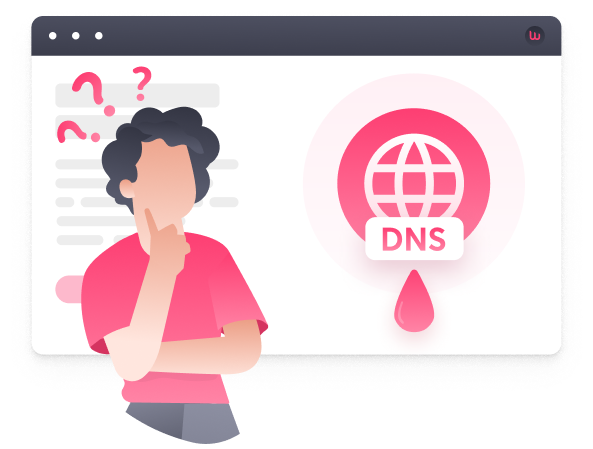Not Protected
Your internet service provider can monitor the sites you browse, see the apps you use, and much more.
Whoever runs your DNS servers can log every website you visit.
You’re using WeVPN’s secure DNS servers.
Not Protected
Your internet service provider can monitor the sites you browse, see the apps you use, and much more.
Protected
Your internet service is protected by WeVPN’s secure DNS Servers.
DNS, or Domain Name System, is a database of hostnames (such as www.wevpn.com ) and their corresponding IP addresses. As computers don’t understand hostnames and people are terrible at remembering IP addresses, the DNS system allows an easy translation between the two formats for convenience.
As of January 2021, 59.5% of the global population are active internet users or 4.66 billion people. When most of us go online, we don’t actually know what goes on in the background and who has access to our information. Even if you’re worried about your privacy and use tools to protect it, sometimes a misconfigured or malfunctioning VPN app can leave your DNS queries visible to your ISP. This is known as a DNS leak.
The owner of your DNS server can make a log and track every single website and app you use. That means your ISP can collect your online browsing habits.
It can be a requirement of law (such as the Investigatory Powers Act 2016 in the UK)
It provides a source of income for your ISP by selling your data.
Companies then use this information for targeted ads and other marketing strategies to promote their brand.

It can give unauthorized third parties the ability to track all of your online activity.
It can compromise your online privacy by providing a clear overview of what you do online.
The mechanism that makes DNS a serious privacy risk is that your web browser uses DNS to find the websites you are looking at. This means that every site you visit can be logged and assigned to your digital fingerprint. This means your interests, hobbies, pictures, videos and more are all logged and can be used by marketing companies to target you with adverts which can focus on interest groups, locations, age, gender, race and many other attributes.
The most common causes of DNS Leaks whilst using a VPN are:
Manually configured VPN: A manually configured VPN connection can expose your DNS as the configuration may change or be accidentally misconfigured.
Manually configured DNS: A manually configured DNS will supersede any DNS servers you may have configured within an application.
Third Party Control: Third Party control of a router can route your DNS traffic to a server of their choice. This is often done with hardcoded DNS servers in ISP provided routers and modems.